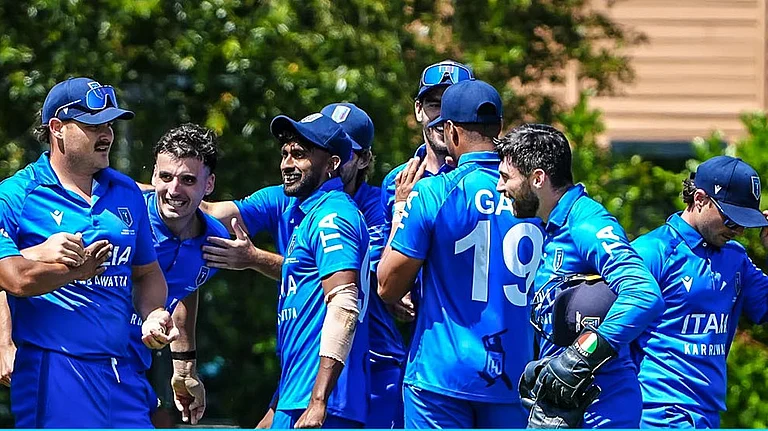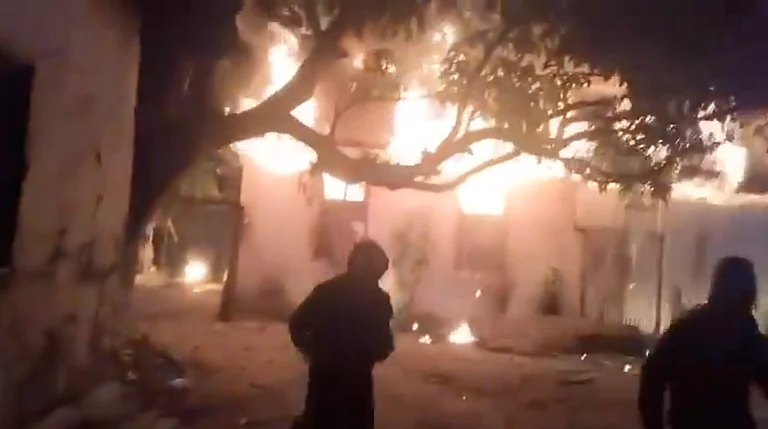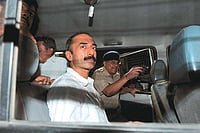IN The Pleasures of Philosophy, Will Durant writes: "Democracy without education means hypocrisy without limitation. It means the degradation of statesmanship into politics. It means the expensive maintenance, in addition to the real ruling class, of a large parasitic class of politicians whose function is to serve the ruler and deceive the ruled. The last stage of the matter is gangmen rule. Criminals flourish happily in our larger cities, because they are guaranteed the full protection of the law. If they belong to the organisation (the political party) or have friends in it, they have every assurance that if they commit a crime, they will not be arrested; that if arrested, they will not be convicted; that if convicted, they will not be sent to jail; and if jailed, they will be pardoned; that if unpardoned, they will be permitted to escape. If, in the practice of their profession, they should be killed, they will be buried with grandeur and ceremony due to a member of the ruling class and memorial tablets will be erected in their honour."
That members of organised crime syndicates operate quite blatantly in Mumbai and other big cities of India is a fact. These criminals, who are members of political parties or have friends in the right places, know that they can get away with murder. They know that they will not be convicted if they are prosecuted, and if convicted, will hardly spend any time in jail. We live in a soft State. We have the best of laws but a low level of enforcement. Laws are selectively enforced, according to the wishes and dictates of the powers that be. The police forces are badly politicised. Police chiefs are chosen on the basis of proximity to those in power. Pliable officers are preferred, even if they are known to be inefficient or corrupt. In this climate of permissiveness and laxity, the underworld makes its presence felt.
Haji Mastan, Varadarajan Mudaliar and Karim Lala, the gangl-ords who ruled Mumbai's underworld in the late '70s and early '80s, have gone. The new dons, Dawood Ibrahim, Arun Gawli and Chotta Shakeel, are ruthless, better organised and universally feared. Mastan, Vardhabhai and Lala delved in the traditional realm of bootlegging, gambling, prostitution, smuggling and protection rackets. The new lords of crime fund select businesses and their extortions relate to these new sources of income.
In the early post-Independence era, Mumbai had small-time criminals with a local following who were afraid of the law-enforcing machinery. In the '60s, bootlegging, gambling and prostitution rackets received political and police patronage, cautiously and on a modest scale at first, but openly as the bond between the criminals and the authorities was nurtured. Politicians need money and muscle to win elections—the criminals rendered their services gladly in return for the freedom to operate on bigger scales. This required police connivance. Junior officers could be bought over with shares in the rackets. Senior officers were silenced through the weapon of transfers and appointments.
Throughout this period, which extended into the '70s, the public was not unduly concerned, though they did feel that the law and order situation was deteriorating. But a drastic fall in the value systems of the middle-classes, inevitably reflected in the attitudes of senior police officers to corrupt practices, has vitiated the atmosphere. The number of IAS and IPS officers who have not been bitten by the money bug has reduced substantially. Wronged citizens do not know whom to turn to with their complaints.
In the meantime, ganglords have become bolder and more powerful. Those who began with petty extortions in the city lanes have graduated to organised extortions. In the '70s and '80s, landlords began approaching gangsters to intimidate tenants to vacate their premises. The real estate market presented vast opportunities to the "mafia" when the same landlords who had sought their help to evict tenants sold their plots to builders. The gangs patronised the builders, then lent money to them at exorbitant rates and finally ended shooting those who aligned with their rivals.
Another lucrative source for the gangland was Bollywood. There were big pickings to be made in underhand deals with producers and distributors. Those who reneged on promises became easy targets. The steady fall in police morale and morals, which followed the unholy nexus between the criminals, the politicians and the police, created a climate conducive for the gangs to operate.
The police force apart, the entire judicial process has been inflicted with a similar malaise. Witnesses are suborned, prosecutors bribed, jailors threatened and magistrates approached. What Will Durant had noted in another country at a different time has come to pass in Mumbai with the inexorable march of "democracy without education".
The city is not becoming another Chicago, as some are fond of saying. It is not dangerous to travel around the city. The likelihood of being robbed or molested is not great unless someone is bedecked in jewellery in the market-place or on the railway platform. An ordinary man may become the victim of a common thief. But he will not attract the interest of crime syndicates.
Years ago a psychopath went round the streets of Mumbai at night crushing the heads of sleeping pavement dwellers. Old ladies, residing in high-rise builders, were agitated. Even when it was pointed out to them that they themselves did not sleep on the pavements, they were not reassured. A similar psychological fear has gripped the city. Those who have no truck with the underworld, or who do not operate in grey areas, need not live in fear. But the public should demand a more professional police force, led by men of competence and integrity, unencumbered by political remote control—accountable only to the law of the land.
(The writer served as police chief in Mumbai and Punjab)
























